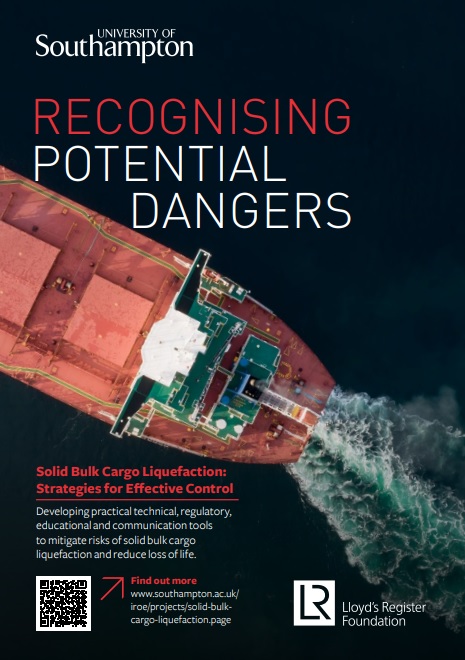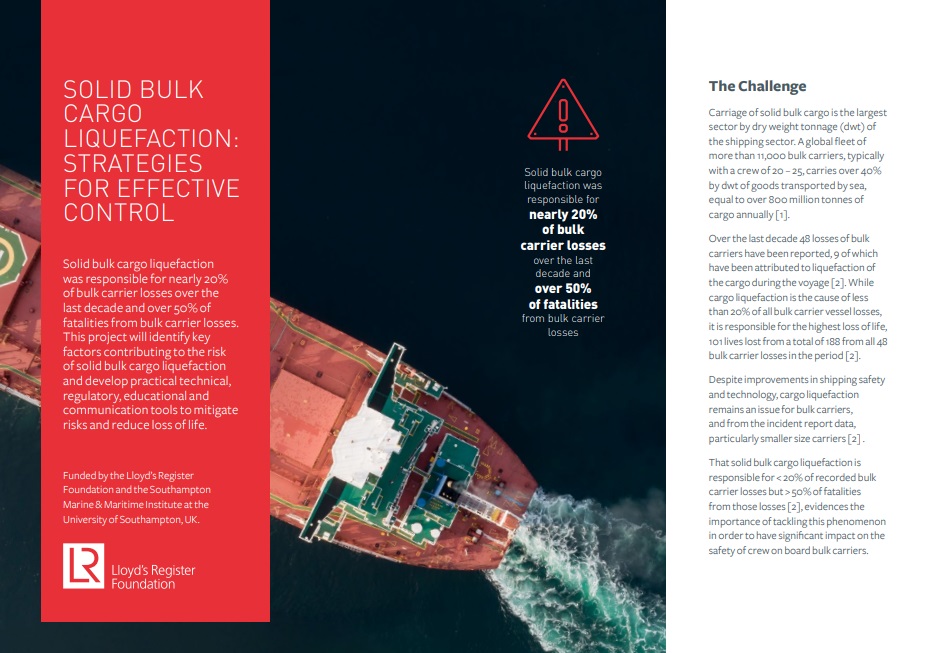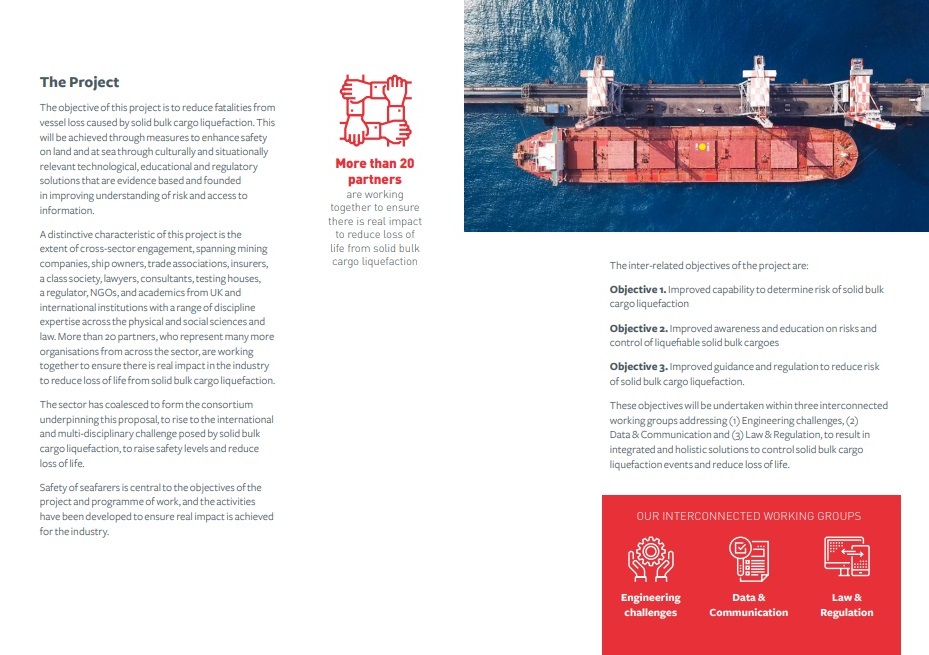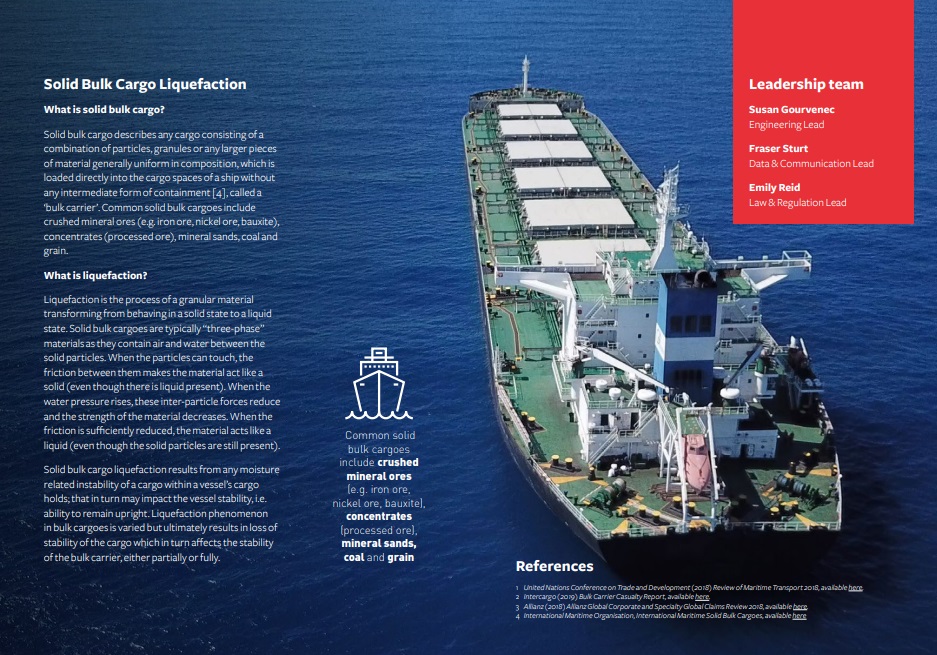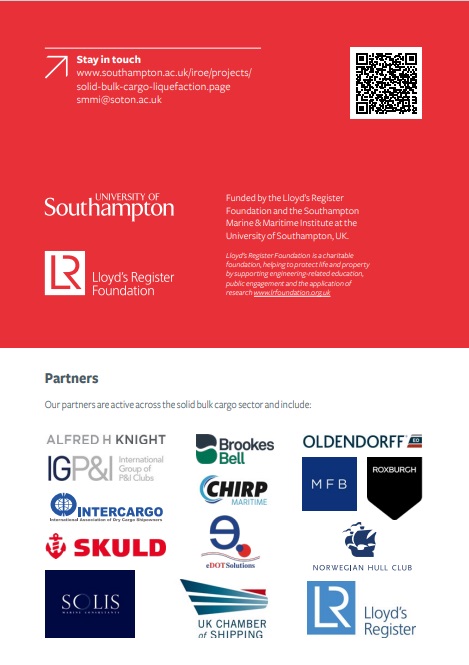Project overview

Solid bulk cargo liquefaction (SBCL) was responsible for over 50% of fatalities and nearly 20% of bulk carrier losses over the last decade. This project is identifying key factors contributing to the risk of SBCL and developing practical technical, regulatory, educational and communication tools to mitigate risks and reduce loss of life.
The objective of this project is to reduce fatalities from vessel loss caused by solid bulk cargo liquefaction. This will be achieved through enhancing safety on land and at sea through culturally and situationally relevant technological, educational and regulatory solutions that are evidence based and founded in improving understanding of risk and access to information.
The scale of loss of life due to solid bulk cargo liquefaction is significant – responsible for over 50% of fatalities due to bulk carrier loss over the last decade [1].
Carriage of solid bulk cargo is the largest sector by dry weight tonnage (dwt) of the shipping sector. A global fleet of more than 11,000 bulk carriers, each with a crew of 20 – 25, carries over 40% by dry weight tonnage (dwt) of goods transported by sea, equal to over 800 million tonnes of cargo annually [2].
Over the last decade 48 losses of bulk carriers have been reported, 9 of which have been attributed to liquefaction of the cargo during the voyage. While cargo liquefaction is the cause of less than 20% of all bulk carrier vessel losses, it is responsible for the highest loss of life, 101 lives lost from a total of 188 from all 48 bulk carrier losses in the period.
Despite improvements in shipping safety and technology cargo liquefaction remains an issue for bulk carriers, and from the incident report data, particularly smaller size carriers [1]. Liquefaction is thought to be behind the recent losses of the Emerald Star in 2017 and the Bulk Jupiter in 2015, with a combined loss of 32 lives [3].
That solid bulk cargo liquefaction is responsible for < 20% of recorded bulk carrier losses but > 50% of fatalities [1], evidences the importance of tackling this phenomenon to have significant impact on the safety of crew on board bulk carriers.
A distinctive characteristic of this proposal is the extent of cross-sector engagement, spanning mining companies, ship owners, trade associations, insurers, a class society, lawyers, consultants, testing houses, a regulator, NGOs, and academics from UK and international institutions with a range of discipline expertise across the physical and social sciences and law. 22 partners, who represent many more organisations from across the sector, will work together to ensure there is real impact in the industry to reduce loss of life from solid bulk cargo liquefaction.
This project is funded by the Lloyd’s Register Foundation.
Find out more about solid bulk cargo liquefaction.
[1] Intercargo (2019) Bulk Carrier Casualty Report
[2] United Nations Conference on Trade and Development (2018) Review of Maritime Transport 2018
[3] Allianz (2018) Allianz Global Corporate and Specialty Global Claims Review 2018
Find out a copy of the Solid Bulk Cargo Liquefaction brochure below
